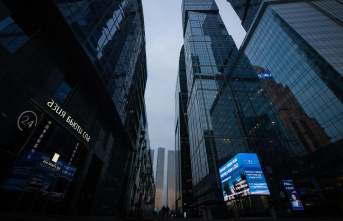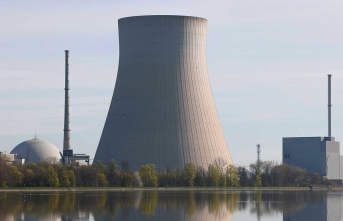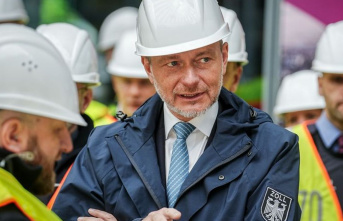Francis pleaded for forgiveness in an audience with many members of the Metis and Inuit communities. They were seeking a papal apology from Rome and a promise by the Catholic Church to fix the damage. According to the first pope of the Americas, he wanted to visit Canada during the Feast Saint Anna on July 26.
From the 19th century to the 1970s, more than 150,000 Canadian native children were forced to attend Christian schools funded by the state. This was done to remove them from their culture and homes. It was intended to Christianize them and integrate them into mainstream society. This was a goal that previous Canadian governments considered superior.
Canadian officials have admitted that sexual and physical abuse were rampant in schools. Students were even beaten for speaking their native language. Indigenous leaders cite the legacy of abuse and isolation as the root cause for the high rates of drug and alcohol addiction on Canadian reservations.
Francis shared their stories with the Indigenous groups after hearing them all week. He said that the colonial project had ripped children from their families and cut off their traditions, culture, and roots. This has caused inter-generational trauma that continues to be felt today. He stated that it was a "counter-witness to the Gospel that the residential school system claimed to uphold."
Francis said, "For the deplorable behavior of those members the Catholic Church, ask forgiveness of God." "And I want you to know from my heart that I am deeply sorry. I am sorry and join the Canadian bishops.
Although the trip to Rome was planned for years, the Indigenous elders, leaders and survivors gained momentum last year when they discovered hundreds of unmarked graves in some of Canada's residential schools. Each group met with Francis separately over several hours, and told their stories to him, culminating in Friday's audience.
Cassidy Caron was the president of the Metis National Council. She said that the Metis elder who was sitting next to her broke down when she heard what she called a long-overdue apologies.
"The pope's words were historic today, to be certain." "They were necessary, and they are deeply appreciated," Caron said to reporters at St. Peter's Square. "And now I look forward to Pope Francis's visit Canada. He can offer his sincere words to apologize directly to survivors and their families. It is their acceptance and healing that ultimately matters."
Chief Gerald Antoine of First Nations echoed this sentiment and said that Francis acknowledged the cultural "genocide," which had been committed against Indigenous peoples.
"Today is the day we have been waiting for. He said that it was a day that would be remembered as a landmark in American history. It's an historical first step but it's only one.
He said with other delegates that there was much more that the church could do on the path to reconciliation. However, for now Indigenous leaders insist on being involved in the organization of the papal visit to ensure that Francis stops at places that are spiritually important to their people.
Natan Obed, president, Inuit Tapiriit Kanatami thanked Francis for taking on all the concerns raised by the Indigenous delegations. He said, "And he did it in a manner that really showed his empathy toward the Indigenous peoples of Canada."
Nearly three quarters of Canada's 130 residential school were managed by Catholic missionary congregations.
Tk'emlups Te Secwepemc Nation announced last May that 215 gravesites were discovered near Kamloops in British Columbia. The gravesites were discovered using ground-penetrating radar. It was Canada's largest Indigenous residential college. The graves were the first of many similar grim sites throughout the country.
Canada's Truth and Reconciliation Commission demanded that a papal apologie be made on Canadian soil for the church’s involvement in the abuses, even before the graves were found.
Canada also paid billions in reparations to Indigenous communities as part of a settlement for a lawsuit involving Canada, churches, and approximately 90,000 students who survived. For its part, the Catholic Church has already paid more than $50 million and plans to add $30 million over the next five year.
Justin Trudeau, Canada's Prime Minister, acknowledged Francis' apology, and stated that he was looking forward to hearing it in person.
He said that this apology would not have been possible without the tireless advocacy of survivors who traveled to tell their stories directly to the institution responsible, and who relived and recounted their painful memories. While today's apology is a positive step in acknowledging our past and correcting historical wrongs, there is still much to do.
Francis stated that he felt ashamed for the part Catholic educators played in the harm. He said, "In the abuse and disrespect for you identity, your culture, and even your spiritual beliefs." "It is obvious that the contents and meaning of the faith cannot ever be transmitted in an extraneous way to the faith."
He said, "It's chilling to think about determined efforts to instill an inferiority, to strip people of their cultural identity and to sever their roots. And to consider all of the personal and sociological effects this continues to have: unresolved traumas which have become inter-generational.
The audience performed joyful Indigenous prayers by dancers, drummers, and fiddlers after the papal apology. Francis listened, applauded, and gave a thumbs-up to them. He was then presented with gifts by his delegates, including snowshoes. Francis returned the First Nations cradle that he had taken with him over night as he contemplated his apology.
Francis' apology was far more than what Pope Benedict XVI offered in 2009 to an Assembly of First Nations delegation. He did not apologize.
The Argentine pope is not afraid to apologize for his mistakes and for the "crimes of the institutional church". During a 2015 visit, he apologized to Bolivia for the crimes, sins and offenses that the church had committed against Indigenous peoples during colonial-era Americas conquest.
These same colonial crimes were committed in Canada's Catholic-run residential schools.
He said, "Your identity and culture have been damaged, many families have separated, many children are victims of this homogenization activity, supported by ideologic colonization programs rather than respecting people's lives."












